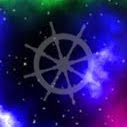I love Lovecraftian horror.
(That's a really awkward thing to write. I went back and forth on it a few times, but "I like Lovecraftian horror" was just too weak.)
They're great, though. I mean, Lovecraft is pretty much the go-to on that, obviously. (It's got his name right in the genre!) At the Mountains of Madness, The Call of Cthulhu, The Shadow Over Innsmouth, The Dunwich Horror, Pickman's Model, and The Shadow out of Time are all really amazing stories about the unknown. With the partial exception of The Dunwich Horror, they all tell stories of an unfathomable universe of which humanity is a completely insignificant part. We have no chance to fight back. We cannot hope to defend against the alien things that exist alongside us. We cannot hope to even understand them. They are as beyond us as we are beyond ants.
There's one recurring element to Lovecraftian fiction that always jolts my suspension of disbelief, just a little. The slightest thing out of the ordinary will drive everyone completely insane.
I mean, I understand that it would be a huge mental trauma to find out that humans aren't actually the superior species. I understand that it would be horrifying to find out that we were barely sentient at all, compared to the great minds moving about just below us. I could easily see horrible depression coming out of that, a growing self-hatred as the knowledge that you simply do not matter hits home.
As opposed to what we generally find: "Humans aren't the masters of the Earth; there are entities older than our entire race... BETTER TEAR OUT MY EYES!"
Now, to be fair, I have an unfair advantage over Lovecraft's characters. I've read about and watched countless encounters between humanity and Elder Beings from Beyond The Stars. Sure, most of the time, the plucky humans manage to find a way to overcome the god-things anyway, but it's very common for the situation to start off with everyone thinking that the humans are insignificant, barely sentient insects. And sometimes that even stays the case, especially with written fiction (it's probably hard to make a TV show where it turns out humans really are worthless, after all). The people in Lovecraft's books don't have the toolset I have for dealing with that concept.
So I'll excuse a lot of instant, just-add-water insanity in Lovecraft's own writing. In addition to the above, Lovecraft was dealing with a very early concept of psychology, as well. It's hard to hold it against him when I don't find his early-1900s pop psychology that convincing. But modern writers just don't have that excuse.
If you're going to write a story that includes people "going mad" because of close encounters with an eldritch horror, you had better really make that believable. That horror has got to be described in a way that, when I read it, makes me think, "Oh ok, yeah. I could see that driving someone crazy."
If I read a story that takes place in the 2000s, and a character is driven to schizophrenia because he discovered that mankind is merely a side effect of an ancient experiment, then I'm probably not going to buy it. Why would that drive him insane? "Because it's horrifying" is just not a good enough answer. Not anymore.
And after nearly 80 years, you can't claim it's an homage to Lovecraft, either. Well, you can claim it, but I'm still not going to believe the story.
(My favorite Lovecraft story is actually very different from any of the "unknown abomination" stuff he's most known for. The Outsider is one of the best short stories I think I've ever read. You should go read it, now.)
Thursday, September 27, 2012
Subscribe to:
Post Comments (Atom)


No comments:
Post a Comment